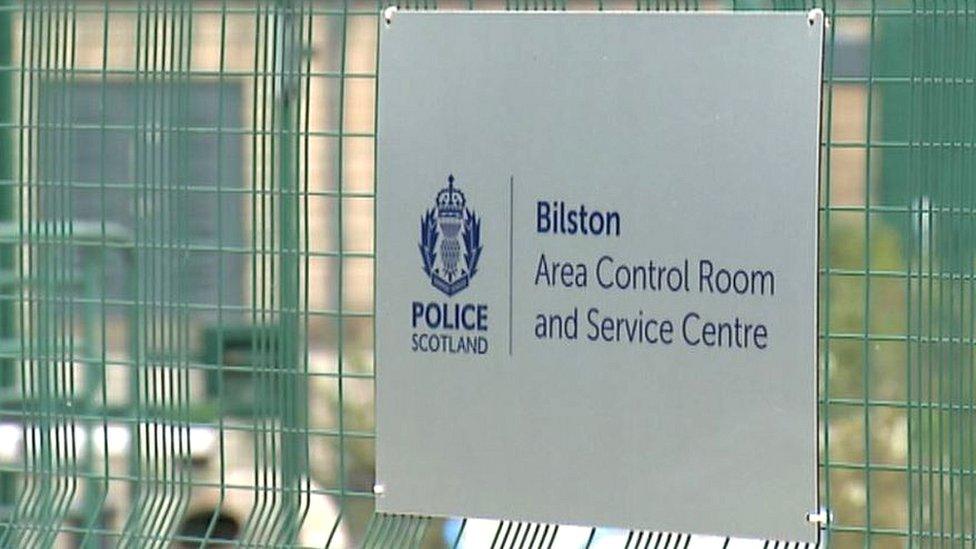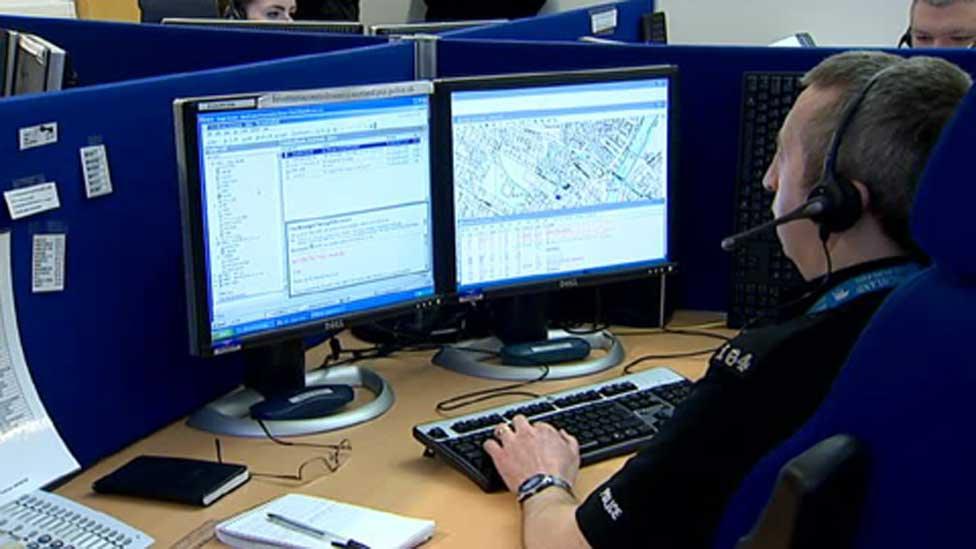Police handling of Penicuik attack criticised by watchdog
- Published

The police control room at Bilston Glen was out of action for several hours
Police could have prevented a serious attack on a man if they had responded to a report of an earlier assault, a police watchdog has found.
The victim need facial reconstructive surgery following the incident in homeless accommodation in Midlothian last September.
The Police Investigations and Review Commissioner found a Police Scotland controller did not ask officers to deal with the initial assault report.
Police Scotland has apologised.
The Pirc report found that the victim called 999 at 02:00 on 3 September 2018.
He told them he had been seriously assaulted, needed medical attention and the person responsible was still there.
Bleeding heavily
It was passed to the Bilston Glen control room but the controller said no officers were available to attend.
Twenty minutes later, the man called 999 to report a second assault by the same man. He said he had a number of head injuries and was bleeding heavily.
Control room staff called for an ambulance but no police officers were sent because the controller said no resources were available.
Police Scotland received a further phone call at 02:47 by a member of the public who reported a disturbance outside the homeless accommodation.
Again, no police officers were sent as the controller said no resources were available to attend.
The Scottish Ambulance Service initially did not send an ambulance as they did not have an ambulance available.
Reconstructive surgery
Just after 03:00, the injured man was assaulted for a third time by the same man who punched and kicked him to the head and body whilst he was lying on the ground.
At some point, between the second assault and the third assault, the man forced entry to a female resident's room and attempted to rape her.
The details of the incident were brought to the attention of the local police sergeant at 03:24 who attended the homeless accommodation, supported by other police officers, and found the victim unconscious.
He had severe injuries, including facial injuries which required reconstructive surgery.

Just under an hour later, police officers discovered the woman in her room and she reported that the man who had carried out the assault had attempted to rape her.
The report found during the course of the incidents, police officers in the area were directed to attend lower priority calls by Bilston control room and it appeared no thought had been given by the controller to re-deploy local officers or task resources from adjoining areas or from other police units
The man who carried out the assault was arrested and later stood trial at the High Court in Edinburgh.
He was found guilty of assault to severe injury and permanent disfigurement and assault with attempt to rape on 18 December 2018. He was detained in a state hospital for treatment for a mental health condition.
The trial judge Lord Mullholland was critical of the length of time it had taken police to attend in response to the victim's emergency 999 calls.
Police apology
Police Scotland referred the incident to the Pirc on 24 December 2018, more than three months after the incident.
The report found that it was "highly likely" the third assault on the man would not have occurred if the Bilston controller had directed officers to attend the initial reports of assault.
It has made a number of recommendations to Police Scotland.
Assistant Chief Constable John Hawkins, of Police Scotland, said: "Our officers and staff work with commitment and professionalism day in, day out, to provide a high quality policing service for the public.
"We accept the commissioner's findings and I am sorry that we did not meet those high standards on this occasion. We recognise the significant impact this had on the people involved.
"We have already identified and addressed a number of the concerns highlighted in this report and will reflect on the Pirc's findings to see if we can do more to improve how we serve the public."